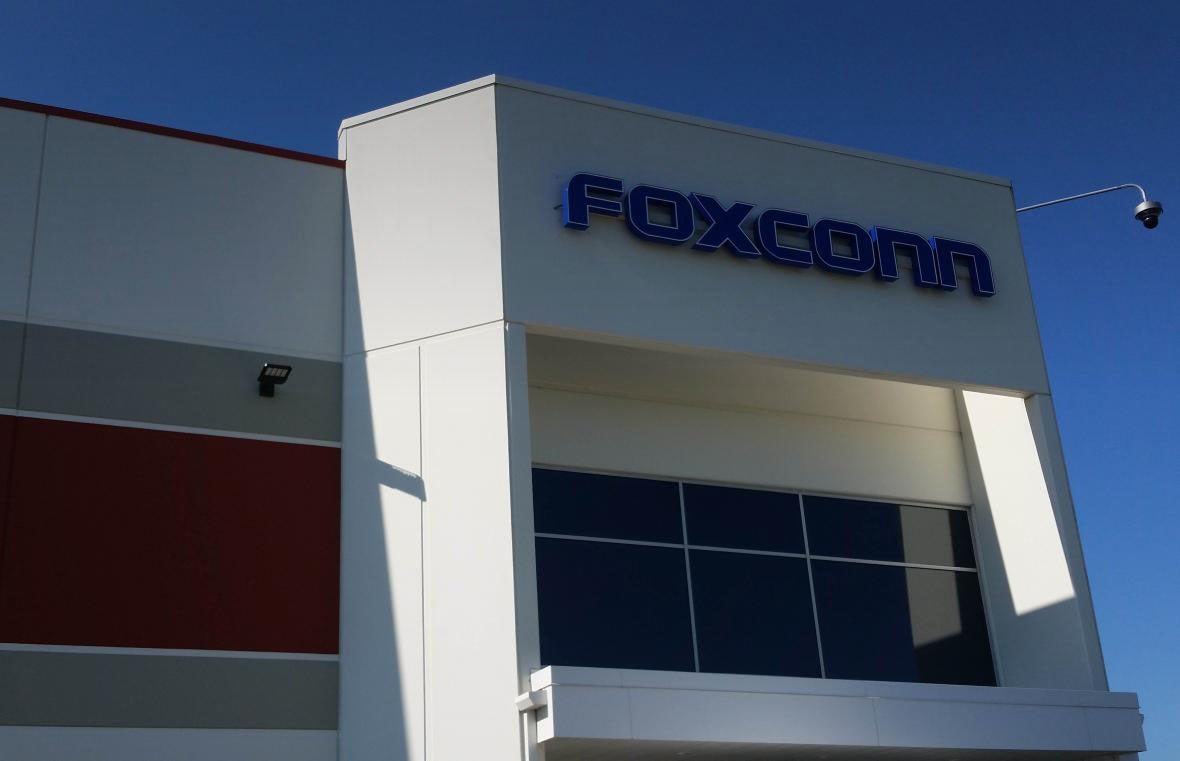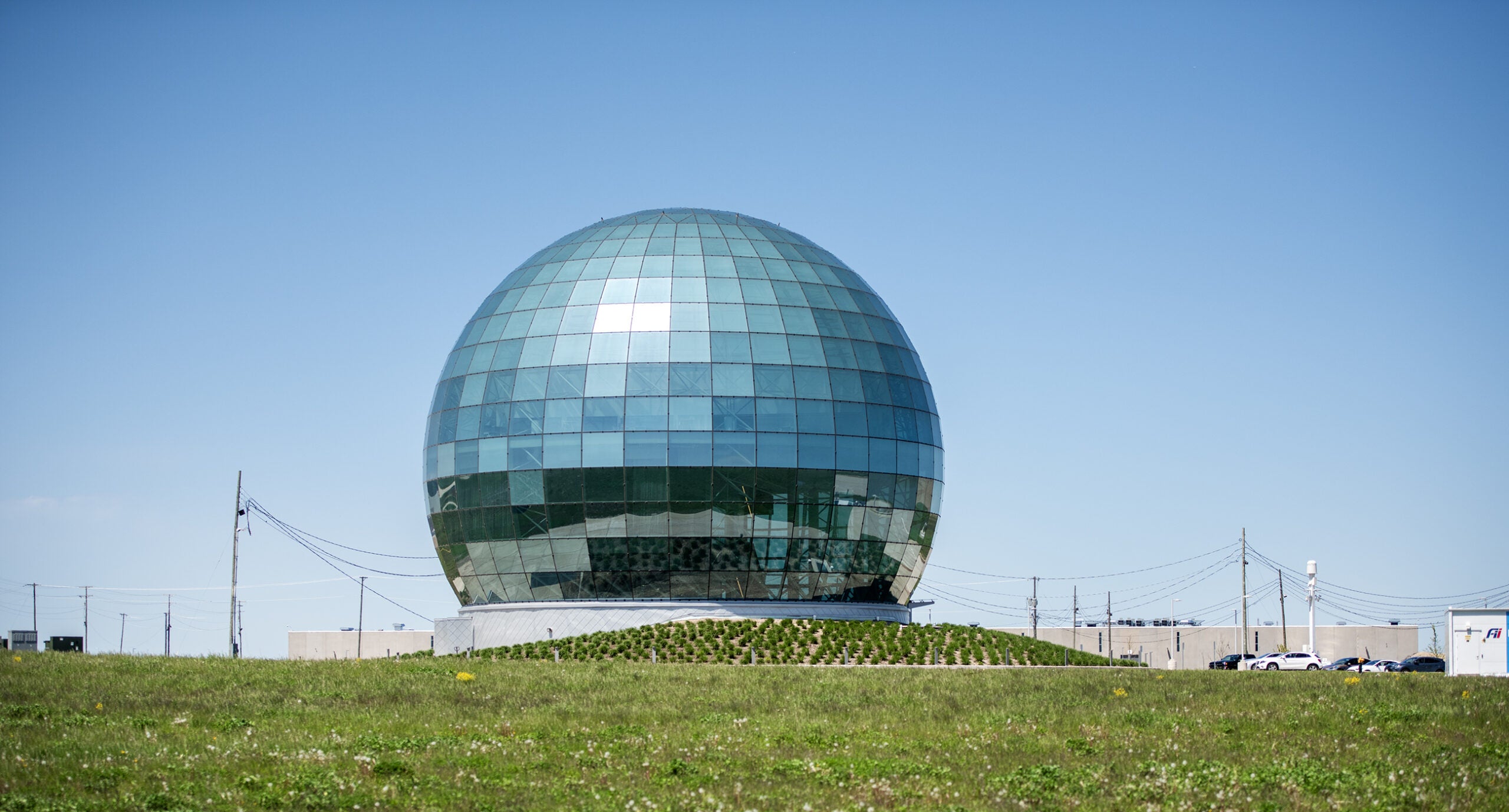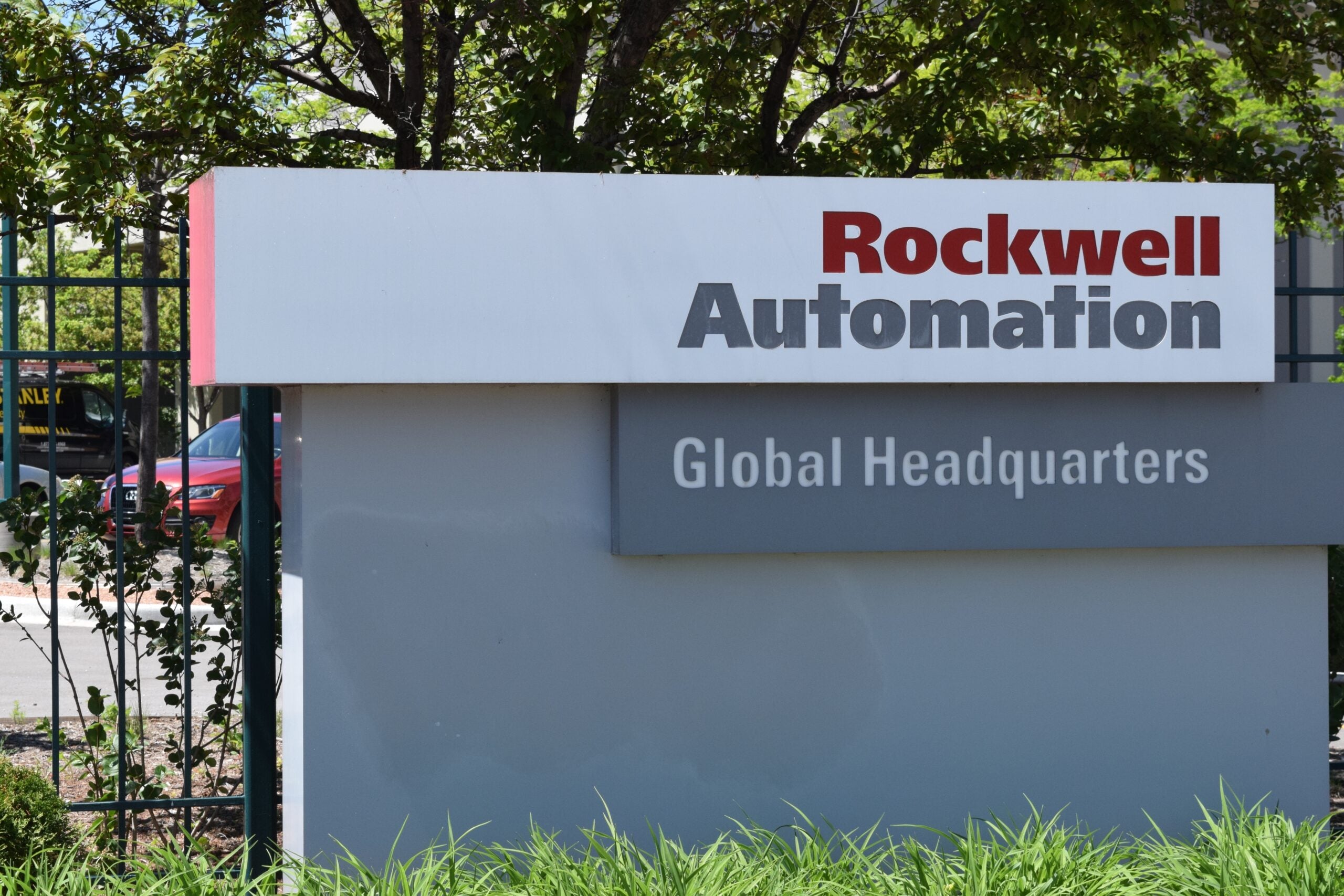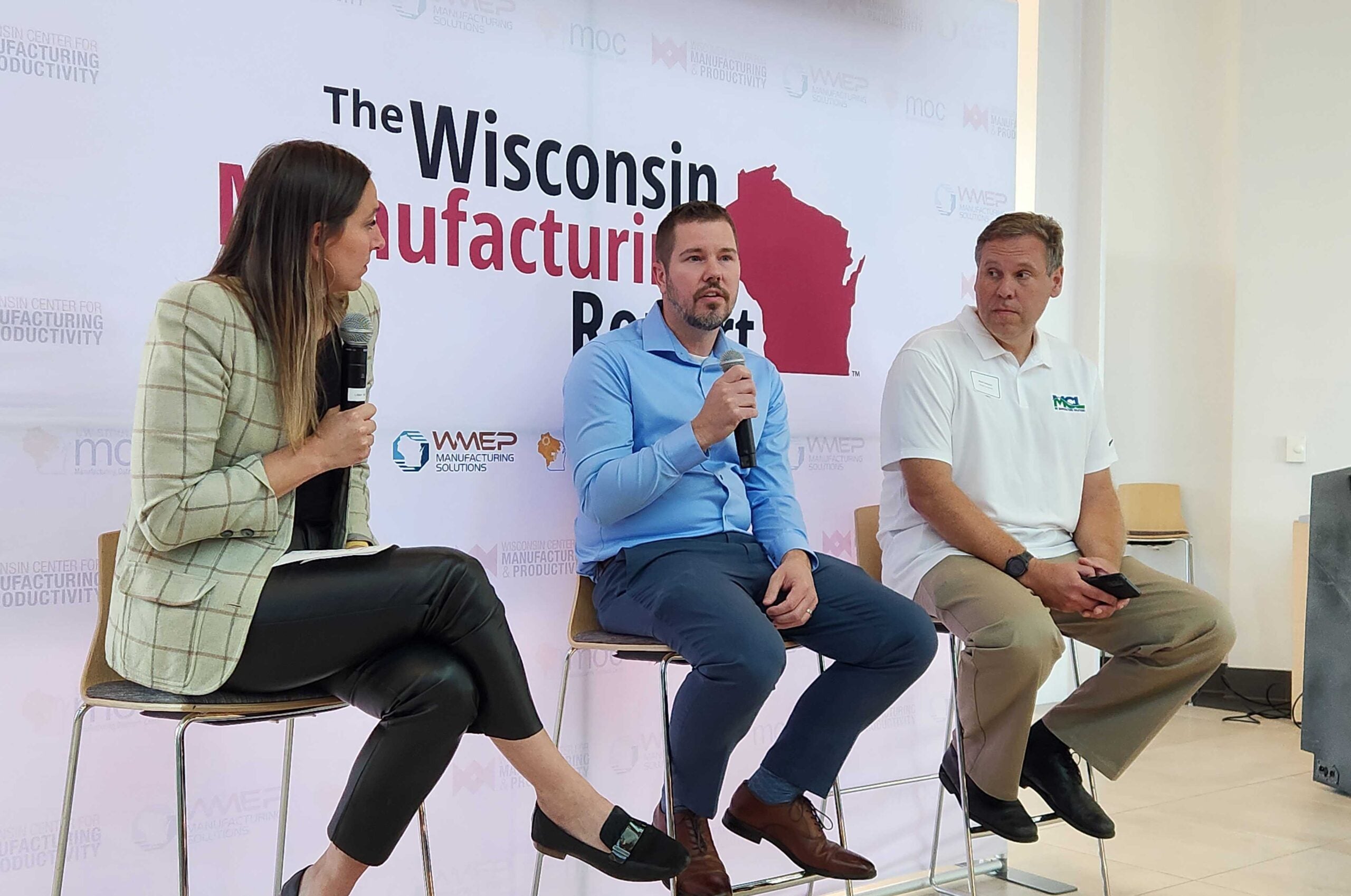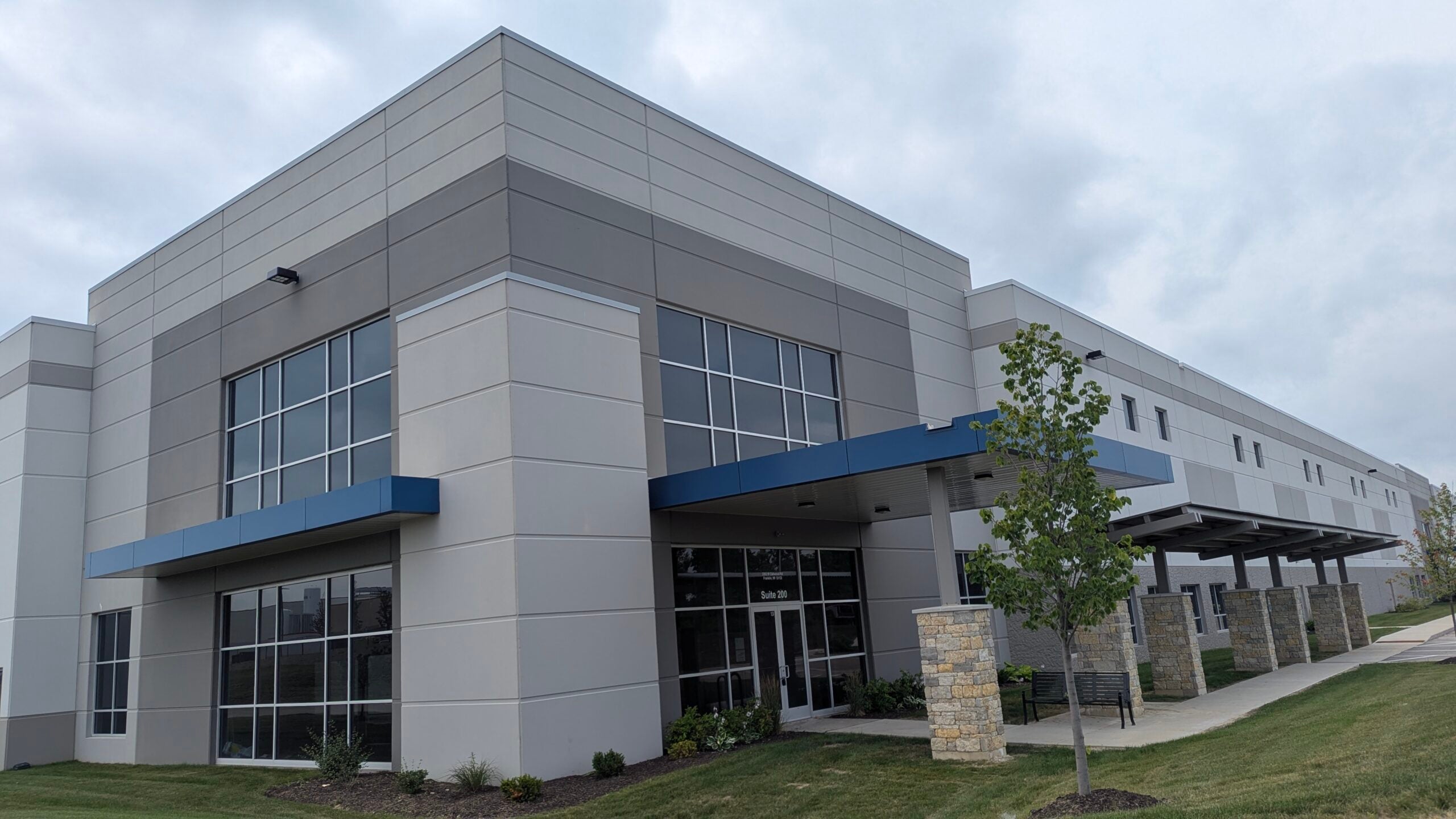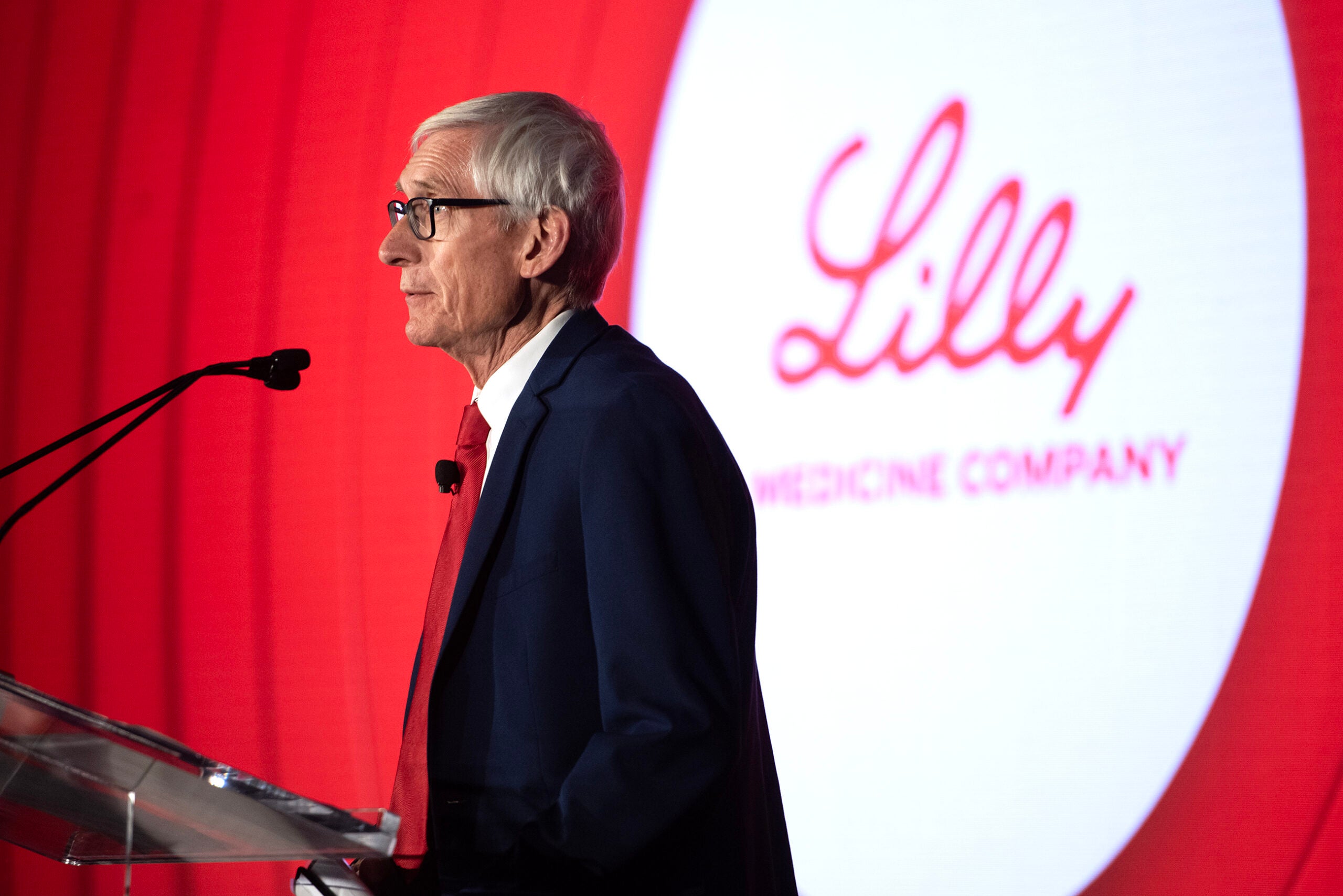It’s been about a week since Foxconn officials told Reuters that the electronics giant’s plans for Wisconsin were shifting away from a planned manufacturing plant. The company later reversed course — after a conversation between Foxconn CEO Terry Gou and President Donald Trump — and said the plant would indeed be built for manufacturing after all.
But there are still big questions about what exactly is coming to Racine County — and what it will mean for the area and for the state.
Reporter Austin Carr spent months reporting on the Foxconn development for Bloomberg Businessweek, his findings were published in a new piece called “Inside Wisconsin’s Disastrous $4.5 Billion Deal With Foxconn.”
News with a little more humanity
WPR’s “Wisconsin Today” newsletter keeps you connected to the state you love without feeling overwhelmed. No paywall. No agenda. No corporate filter.
He told WPR’s “All Things Considered” that he talked with dozens of people involved in, or familiar with, the company’s project in southeast Wisconsin — and that nearly all of them say it will come up short on the promise of 13,000 jobs in Racine County.
One main reason, Carr said, is that the company’s plans have been at times unclear and at other times in flux.
“Ever since this contract was signed, it’s gone through a steady, snowballing evolution between what was initially committed to by Foxconn versus what they probably promised,” he said. “There’s been a lot of will-they-won’t-they tension, if anything, about this deal. Our sources indicate that, for much of the last year, there’s been this ever-changing plan and not really clarity around what the vision is for their larger ambitions within the U.S. and within Wisconsin.”
Foxconn defenders have said the company is adjusting its Wisconsin plans as the market changes.
Carr said Gou has a reputation for making deals and pledges to build, invest and hire in countries and communities — but is also willing to change course.
“A lot of the former executives we talked to for this story, who were involved in a number of these deals, just describe him as almost unsentimental about being willing to renege or all-out abandon some of the commitments he’s made,” Carr said. “He has sort of a pattern of making big promises in exchange for pretty lucrative subsidy deals, from Indonesia to Brazil to India.
“Even Pennsylvania — there was a smaller deal there, which they promised to create up to 500 jobs and invest $30 million in that area. That didn’t really come to fruition, and likewise for those factory operations in Brazil and India, where they promised billions of investment, and tens, if not hundreds, of thousands of jobs that also didn’t materialize.”
There is work going on today at Foxconn’s Wisconsin campus, at a building known as the Experimental Training Center. And some of the work does involve LCD screens, as Foxconn has pledged.
“The issue is,” Carr said, “a lot of their components are actually not made in Wisconsin. Our sources indicate they were actually importing those components from Tijuana, Mexico — basically the most fundamental, key components, the things they were supposed to be making in the U.S., which were supposed to say ‘Made in the USA.’ That’s a pretty jarring sign for the larger ambitions for this factory.”
Carr noted that the company’s hiring has been slower than initially thought in the state — the shifting strategy, he said, has made it “very difficult even to recruit within the state. People there don’t have an understanding of what the company’s requirements are.”
Another challenge, he said, was that “for some of the positions, Foxconn is requiring that people go train in Taiwan for up to a year, which is obviously a hard-sell for recruiting, when this whole pitch was about bringing more jobs to Wisconsin, not shipping them over to Taiwan.”
Meanwhile, he said, the reporting found instances of Foxconn “bringing in foreign personnel, despite denials of doing so, to fill some of the jobs in Wisconsin, which, if the deal goes through as planned, Wisconsin taxpayers would be subsidizing.”
Foxconn officials told Reuters that the high cost of labor in the United States had prompted the company to reconsider its manufacturing plans in Wisconsin, instead focusing on research. But Carr said the real purpose of the plant was to help Foxconn, as he put it, “insulate itself” from the growing trade dispute between the U.S. and China.
“President Trump had made targets of many companies shipping jobs overseas, and Foxconn is almost inextricably linked with that type of outsource manufacturing — a lot of their factory operations are in mainland China,” Carr said. “Some people saw this as an example of them trying to both diversify their factory operations, but also generate goodwill with President Trump and some of the political leaders of the time — then-Speaker of the House Paul Ryan, who’s from Wisconsin; Reince Priebus, then-chief of staff for the White House, who is also another Wisconsinite; as well as Gov. Scott Walker.”
Defenders of the incentives deal have said that unless Foxconn hires and invests as promised, it won’t get state tax credits. Last year, for example, the company didn’t hit its hiring target in Wisconsin and didn’t get its 2018 incentives, Carr said.
Carr said that argument leaves out a lot of the true costs of the deal for Wisconsin.
“Taxpayers have already paid for this deal in so many other ways,” he said. “Not only have there been an incalculable number of man-hours that have gone into putting this deal together, as well as monitoring it, but there’s been local subsidies that have already been calculated about $130 million of investment from Racine County and Mount Pleasant village.
“The state has committed up to about $120 million in related road improvements. There’s just a number of ways in which this deal has been already costly for taxpayers that I think is really misleading when some of the defenders of this project talk about how there’s no risks or no costs to taxpayers if Foxconn doesn’t live up to its commitments.”
In a statement, Foxconn said Carr’s story “attempts to paint a false picture of Foxconn Technology Group and its substantial investment in Wisconsin.” The statement goes on to say Foxconn “remains committed to its long-term investment and creating 13,000 jobs in Wisconsin.”
Carr said the company declined to comment or make its executives available for interviews during the reporting process.
The main lesson of the deal, Carr said, is that bringing manufacturing back to the U.S. is much more challenging than it often sounds, even with billions in tax incentives on the table.
“Foxconn is known for paying workers abroad, say, $2 or $3 an hour,” Carr said. “This whole supply chain network is set up throughout Asia as well as parts of Mexico. It’s not something you can replicate overnight in a place like Wisconsin.
“Additionally, it’s not easy to hire folks. The unemployment rate in Wisconsin, I believe, is about 3 percent. So there’s already a skills gap, there’s challenges for hiring for factories already within the state and other employers. So just erecting this factory there and giving these sorts of weight? Subsidies and capital investment subsidies won’t necessarily bring back manufacturing as President Trump has made it seem as easily as he would during his campaign.”
Wisconsin Public Radio, © Copyright 2025, Board of Regents of the University of Wisconsin System and Wisconsin Educational Communications Board.

